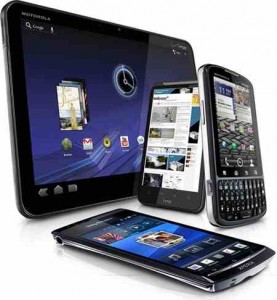Aruba Networks published a survey this week that shows 85% of hospitals allow physicians and staff to use their personal mobile devices for work activities. The adoption of BYOD, “bring your own device” is fast becoming the norm the adoption of mobility solutions into the enterprise.
This trend obviously causes challenges for network administrators who are tasked with building out network capabilities, securely providing access to key data and managing a range of mobile devices. Gartner has long reported that the consumerization of IT is one of the biggest challenges for IT departments for the next 10 years. 35% of the Aruba Networks study respondents reported they plan on building out their current wireless and hard-wired infrastructures within the coming year to support the increased demand of “use your own device”.
We are seeing this trend among many of our customers who are seeking to use cloud based solutions or corporate approved apps on their personal devices. Our ZenTouch customers in particular are allowing their service teams to use the personal Android, iPhone or iPad devices to use ZenTouch to manage their work their service work orders.
With the increased drive to mobilize more segments of business, is a BYOD policy right for you?
As companies evaluate and implement BYOD policies they are reaping benefits in the following areas”
- Provides the benefit of reducing capital expenditures
- Extends user choices beyond the standard corporate devices.
- Increased mobility and productivity. 70% of employees with Smartphones check their corporate email outside of business hours. 43% connect to get ahead of the workload for the following day.
- When workers use their own devices IT support calls are diminished from 4.5 times per month to 2.5 and tend to focus solely on corporate access
- High job satisfaction
As you implement BYOD policies consider the following:
- Who is permitted to have a business supported mobile device? Generally this is determined by organizational role. This list is growing as more and more users are demanding real-time accessibility to more information.
- What devices are supported? Previously BlackBerry held this space but now with BYOD you must consider iOS and Android, Windows Phone etc.
- Who pays for the device and on-going expenses
- Some enterprises may want to enforce acceptable use of a device. Enforceability concerns need to be considered.
- What apps are you going to support?
- Where are apps acquired?
- User responsibilities as the device usage is now blurred between personal and work use.
Cloud based CRM, Work Management Systems, MAM (Mobile App Management), and MDM (Mobile Device Management) solutions are certainly facilitating the trend for adoption of BYOD. With the increased ability to securely distribute and manage corporate data at the point of interaction the adoption of mobile solutions is increasingly more appealing and critical.
Jody Sedrick
Follow me on Twitter: @jodysedrick and @zenewareinc
LinkedIn Profile
~~~~~~~~~~~~~~~~~~~~~~~~~~~~~
Zenware is a Boise Idaho based company that specializes In custom mobile software development, custom iOS development, custom Android development, ipad software development, iphone software development, custom web development, web hosting and Saas based work order management software.

